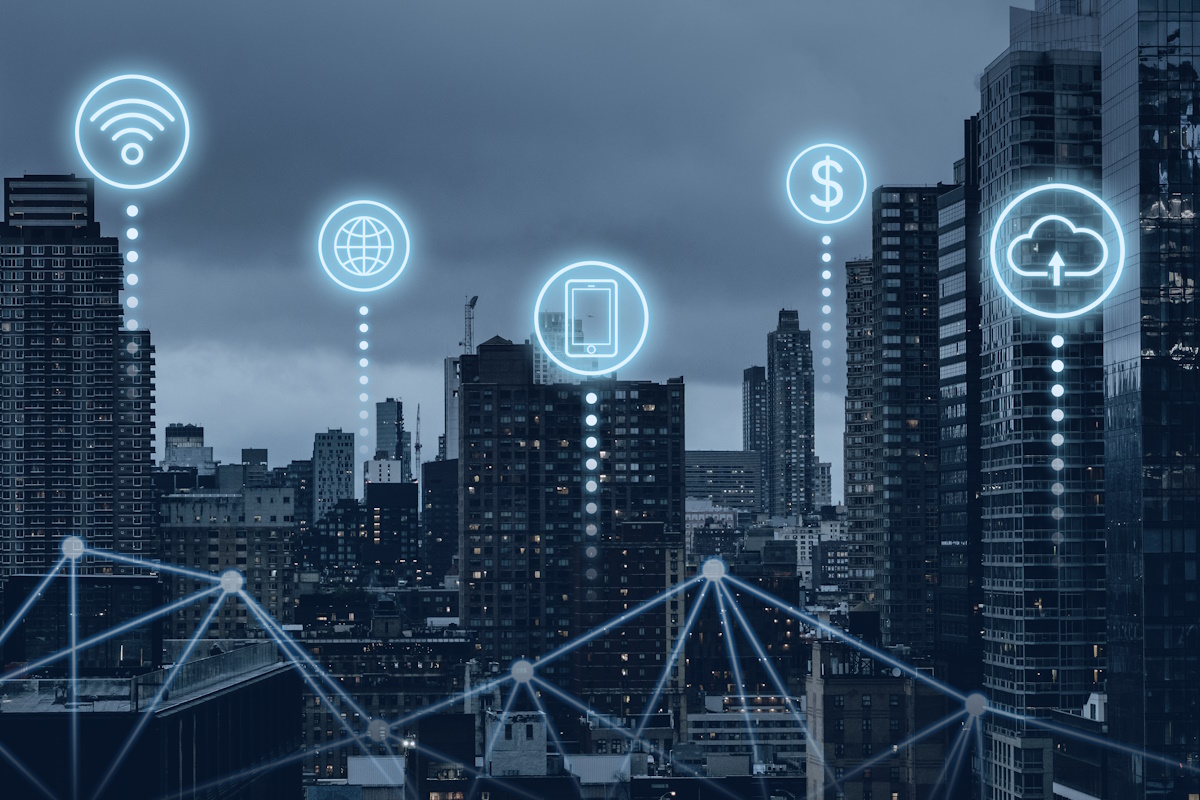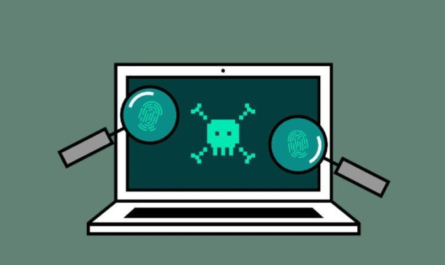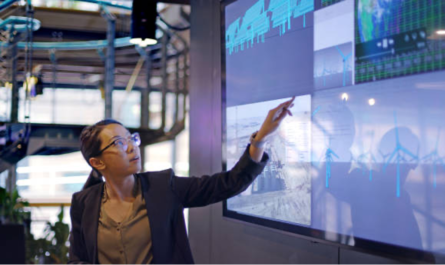In today’s digital era, the Internet of Things (IoT) has emerged as a key driver of Smart Cities. An IoT development company plays a pivotal role in shaping this new urban landscape, enabling cities to become more connected, efficient, and sustainable.
The Internet of Things, or IoT, is a network of interconnected devices and systems that can communicate and share data with each other. This technology is critical in the development of Smart Cities, which leverage digital technology and data-driven insights to improve the quality of urban life.

Contents
The Interplay Between IoT and Smart Cities
An IoT development company helps Smart Cities achieve their vision by providing IoT solutions that enhance various aspects of urban living. For instance, IoT devices can monitor traffic conditions in real-time, enabling city administrators to manage road networks more effectively.
Key Components of IoT in Smart Cities
There are several key components that an IoT development company focuses on when implementing IoT in Smart Cities. These include IoT devices and sensors, connectivity and networks, cloud and edge computing, and data analytics and AI.
Benefits and Impact of IoT in Smart Cities
Improved Efficiency
IoT enables smart cities to optimize various operations such as waste management, traffic control, and energy consumption, leading to cost savings and reduced environmental impact.
Enhanced Safety and Security
IoT devices can enhance public safety through real-time surveillance, emergency response systems, and predictive policing.
Better Quality of Life
With the help of IoT, city administrators can monitor and improve air quality, noise levels, and other environmental factors, thereby enhancing the quality of life for residents.
Informed Decision Making
Real-time and historical data collected from IoT devices provide valuable insights, allowing city administrators to make informed decisions and implement effective urban planning strategies.
- Increased Connectivity
The integration of IoT technology in smart cities facilitates seamless communication and connectivity, empowering citizens with real-time information and services.
Applications of IoT in Smart Cities
IoT has numerous applications in Smart Cities. For example, an IoT development company may design systems to manage traffic and transportation, optimize energy usage, monitor environmental conditions, improve building efficiency, and enhance public safety and security.
Challenges and Solutions in Implementing IoT in Smart Cities
While IoT offers immense benefits, there are also challenges in its implementation. These include data security and privacy concerns, infrastructure and connectivity issues, and the need for technology standardization. An experienced IoT development company can provide solutions and best practices to address these challenges.
Here are a few additional considerations when implementing IoT in Smart Cities:
Scalability
As cities grow and technology advances, the IoT infrastructure must be able to scale accordingly without disrupting existing services.
Interoperability
Different IoT systems within the city must be able to work in conjunction with each other, sharing and interpreting data seamlessly.
Costs
The financial aspect of implementing and maintaining IoT infrastructure can be significant. Strategies need to be in place to manage these costs effectively.
Public Awareness and Acceptance
For successful implementation, it’s essential to educate the public about the benefits of IoT and address any concerns they may have.
Policy and Regulation
Cities need to establish clear policies and regulations about data usage and privacy, ensuring that residents’ rights are protected while still gaining the benefits of IoT technology.
The implementation of a smart city traffic control system is a groundbreaking innovation that can significantly enhance urban living. A case study presented by WeblineIndia demonstrates a prime example of how this technology can be used to improve city traffic. They introduced an IoT-based solution that allows for real-time tracking of public transport vehicles, offering authorities the data needed to manage and optimize traffic flow efficiently. This system provides accurate information about vehicle location, speed, and estimated arrival times, incredibly benefiting commuters. Furthermore, it assists in mitigating traffic congestion, reducing travel time, and enhancing the overall efficacy of the city’s transport system. This instance exemplifies the transformative potential of IoT in shaping smarter, more livable cities.
Future Trends of IoT in Smart Cities
Moving forward, there are several trends in IoT that will shape the future of Smart Cities. These include the adoption of 5G and beyond, the integration of AI and machine learning, and the role of autonomous vehicles and drones.
Increased reliance on 5G
The adoption of 5G technology will significantly enhance the speed and efficiency of data transfer in IoT devices, facilitating more responsive and efficient city services.
Integration of AI and Machine Learning
Artificial Intelligence and machine learning will be increasingly integrated with IoT in Smart Cities to enable predictive analytics, automation, and streamlined decision-making processes.
Autonomous Vehicles and Drones
IoT will play a crucial role in enabling autonomous vehicles and drones, which will revolutionize transportation, logistics, and public safety in Smart Cities.
Enhanced Data Security
As IoT becomes more prevalent, there will be a greater focus on enhancing data security to ensure the privacy and protection of sensitive information.
Standardization of Technology
There will be a need for technology standardization to ensure interoperability between different IoT systems and devices in Smart Cities.
Conclusion
To summarize, the role of an IoT development company in shaping Smart Cities is significant. As technology continues to evolve, we can expect to see more advanced IoT solutions enhancing urban living, making our cities smarter, safer, and more sustainable. With the right IoT development partner, cities have the potential to unlock a world of possibilities.
We specialize in building innovative IoT solutions that help Smart Cities reach their fullest potential. Our team of experts can help you create an integrated and secure system while innovating new pathways for urban living. To learn more about our capabilities and offerings, contact us today. We look forward to hearing from you!
Author Bio:
Arjun Solanki is a Business Growth Strategist at a Leading Software Development Company. He has experience in developing and executing digital strategies for large global brands in a variety of business verticals. Apart from working on a long-lasting relationship with customers and boost business revenue, he is also interested in sharing my knowledge on various technologies and its influence on businesses through effective blog posts and article writing.



